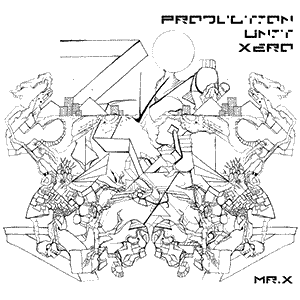The Challengers (2024) Soundtrack Review: Trent Reznor and Atticus Ross’s Sonic Odyssey

Trent Reznor and Atticus Ross have long been celebrated for their compelling, innovative scores that seamlessly integrate with and enhance the narratives of the films they touch. In “Challengers,” their musical prowess is once again on full display, delivering a soundtrack that not only enriches the film’s emotional landscape but also deepens the narrative’s thematic resonances. This review explores how the duo’s latest work fits within the overarching story of “Challengers,” a film that navigates complex themes of ambition, rivalry, and human connection.
Narrative Synergy
“Challengers,” directed by a filmmaker known for their nuanced storytelling, follows the journey of competitive individuals in a high-stakes environment. The narrative intricately weaves together personal ambition with the broader, often brutal realities of competing at the top. Reznor and Ross’s soundtrack mirrors this duality, employing a mix of minimalist electronic textures and more lush, orchestral pieces that reflect the protagonist’s inner life and the external pressures they face.
The score is introduced subtly, with ambient sounds that suggest a sense of place and mood without overwhelming the viewer. As the film progresses, these ambient pieces evolve, growing in intensity and complexity, mirroring the protagonist’s escalating emotional stakes and the mounting pressures of their challenges. This progression in the soundtrack is crucial in not only setting the tone but also in aligning the audience’s emotional response with the narrative arc.
Musical Themes and Motifs
Reznor and Ross are masters at thematic consistency, and in “Challengers,” they employ recurring musical motifs that serve to anchor the film’s various narrative threads. One of the central motifs is a haunting melody that appears during key moments of conflict or decision, serving as an aural reflection of the protagonist’s inner turmoil. This melody, played initially on a solitary piano and later reprised with a full string section, acts as a leitmotif that deepens the narrative, offering insights into the character’s psychological state that dialogue and visuals alone cannot convey.
Another significant element of the soundtrack is its use of dissonance and noise, particularly in scenes depicting the harsher realities of the protagonist’s world. These elements are not just incidental; they are woven into the fabric of the score to enhance the film’s themes of conflict and rivalry. The cacophony during climax scenes contrasts sharply with the more melodic elements, creating a sonic dissonance that reflects the protagonist’s internal and external conflicts.
Integration with Cinematic Elements
The true genius of Reznor and Ross’s work in “Challengers” lies in their ability to integrate the score seamlessly with the film’s cinematography and editing. The soundtrack complements the visual rhythm of the film, with rhythmic beats that align with the editing pace, particularly in sequences of high tension or action. This synchronization not only enhances the visual impact of these scenes but also creates a more immersive cinematic experience.
Moreover, the dynamic range of the soundtrack—from whispered electronic pulses to booming orchestral crescendos—mirrors the film’s visual scale. In intimate, reflective scenes, the music retreats into minimalistic textures, while in scenes of grand emotional or physical scale, it swells to match, thus amplifying the impact of the film’s more dramatic moments.
Emotional Resonance and Viewer Engagement
One of the most critical roles of a film score is to evoke and enhance emotional responses from the audience, and here, Reznor and Ross excel. Their music not only underscores the emotions on screen but also invites the viewers to feel the weight of the characters’ experiences. In “Challengers,” the emotional journey of the protagonist—from isolation to connection, from defeat to redemption—is given depth and resonance through the carefully crafted score. This emotional engagement is achieved not through overt manipulation but through a score that respects the viewer’s intelligence, subtly guiding their emotional journey through the narrative.
Continuing the Legacy
With “Challengers,” Trent Reznor and Atticus Ross continue to build on their legacy as composers who deeply understand the power of music in film. Their score is not merely an accompaniment to the narrative but a fundamental component of the storytelling, offering a richer, more nuanced understanding of the film’s themes and characters.
Their work here stands as a testament to the role of music in cinema, highlighting how a well-crafted score can enhance storytelling, evoke deep emotional responses, and elevate a film from mere entertainment to a profound cinematic experience. “Challengers” benefits immeasurably from their sonic contributions, making it not just a visually and narratively compelling film but also a standout auditory experience.
If you like this album, you’ll love this album:




